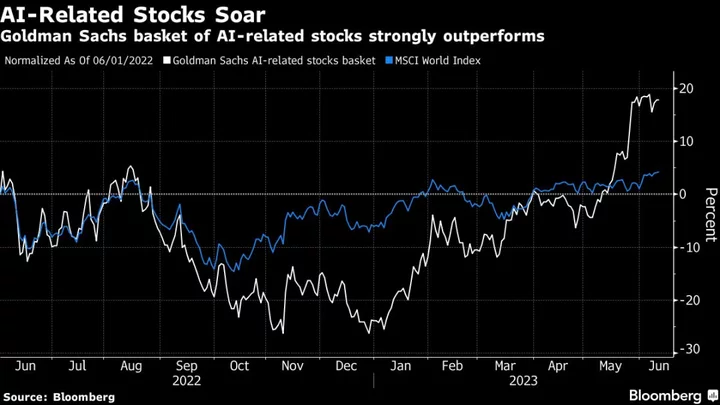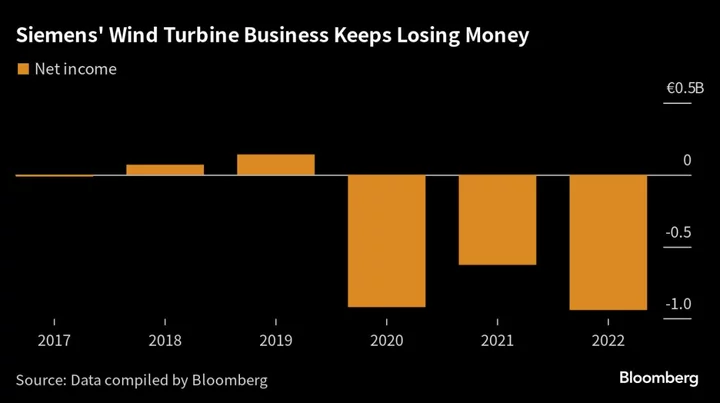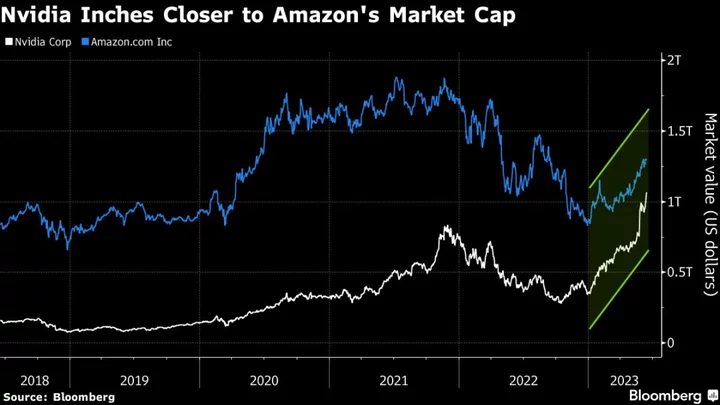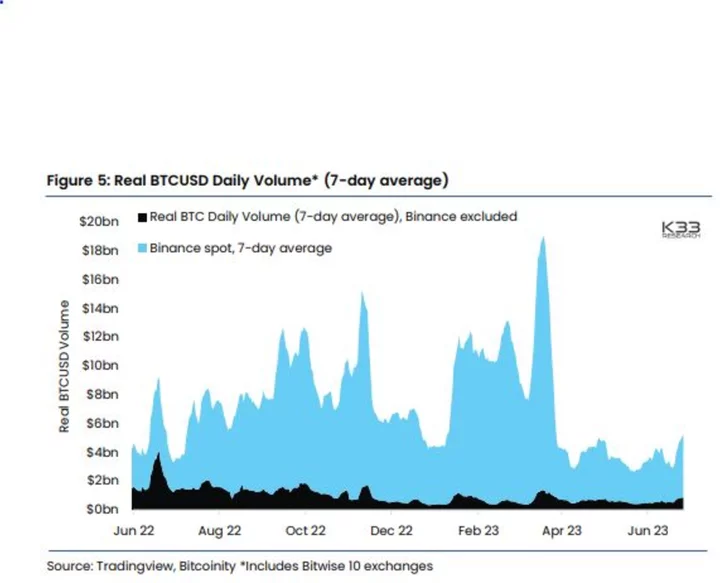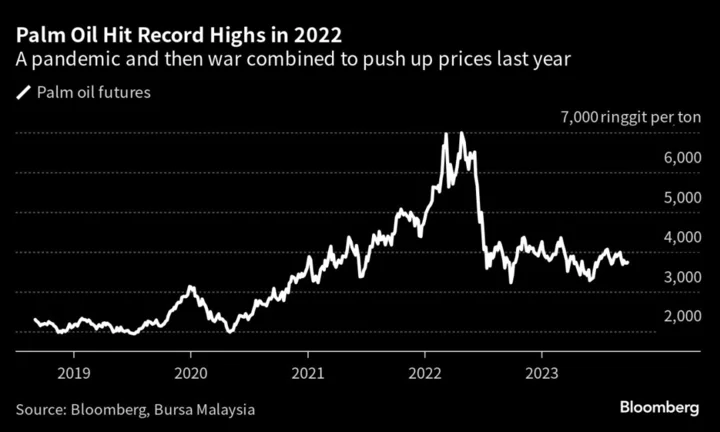The exuberance surrounding artificial intelligence has driven a lot of capital into a small corner of the market in a very short space of time, and that has implications for tech-heavy ESG funds.
According to James Penny, the chief investment officer of TAM Asset Management and a veteran ESG investor, the current mood is reminiscent of the early days of the tech bubble that burst in 2000 and wiped more than 70% off the Nasdaq.
“Companies that even mention the word AI in their earnings are seeing boosts to their share price, and that smells very much like the dot-com era,” Penny, who invests in funds rather than directly in stocks, said in an interview. “I think the market has got a little bit over its skis. I’d put much larger odds on it coming down from here.”
The race to get a piece of the AI boom went into turbo mode last month, after Nvidia Corp. wowed the market with a set of sales targets that surprised even the most upbeat analyst forecasts. The company has added almost 30% to its market value since the announcement in late May, bringing gains this year to more than 160% and helping the Nasdaq add a third to its value.
Nvidia’s Upbeat Forecast Buoys Tech
It’s a development that’s helped boost funds with environmental, social and governance mandates, as ESG portfolios rely increasingly on tech to lower their carbon footprint without sacrificing growth. An analysis by Bloomberg Intelligence shows that tech makes up a third of preferred stocks in so-called Article 9 funds, the highest ESG classification in the European Union. That’s by far the biggest chunk of all sectors.
About 1,300 ESG-registered funds hold more than $20 billion in Nvidia alone, according to data compiled by Bloomberg. At the same time, there’s a subset of ESG fund managers that market themselves as AI-themed, with Bloomberg identifying 20 as of early June that together hold about $8 billion in assets under management.
Martin Todd, a fund manager at Federated Hermes, says AI “is evolving so quickly” that “no one really knows” where things will land. “There aren’t many areas where it’s very clear that it’s either a beneficiary or a risk,” he said. Todd holds both Nvidia and Microsoft in the Federated Hermes Sustainable Global Equity Fund he runs.
While Nvidia supplies the chips for AI processing, the technology itself is being developed by a number of tech giants including Microsoft Corp., Amazon.com Inc. and Google parent Alphabet Inc. The market for generative AI products, which refers to tools like ChatGPT that can create content such as text or images from a prompt, has the potential to grow more than 40% a year and reach $1.3 trillion in the coming decade, according to BI senior analyst Mandeep Singh.
Penny, who’s got roughly a decade of experience selecting assets based on their ability to outperform in a world increasingly shaped by environmental and social risks, says eagerness to be exposed to AI is in part feeding off premature bets that the Federal Reserve will start reversing its cycle of interest-rate increases.
With the US grappling with a regional banking crisis, “the market very quickly accelerated into this scenario where rate cuts are going to be coming quite soon because this is obviously evidence of the economy cracking,” Penny said. That “spurred more and more inflow into growth investing.”
Against that backdrop, “you had this AI trend, which just literally came out of nowhere,” and now “the market’s gone off to the races, like massively in,” he said.
But the buying spree has been fed by “just a few sectors,” in fact, just a handful of stocks, Penny said. At the same time, there’s still the very real risk of a recession, he said.
Gold-Rush Playbook
So instead of piling into the same AI names that others are buying up, Penny says he’s following the playbook of the gold rush of the 1800s, when the smart money didn’t waste time looking for gold, but invested in the tools needed to dig it up.
“I think you’re going to see a massive wave of AI-led products in the market and we will be looking at that, but you have to be very selective,” Penny said. “I would be focusing less on AI manufacturers and more on AI adopters, so that ‘pick-and-shovel”’ kind of strategy. That’s “always where you find phenomenal companies that are in support of the theme and the movement,” he said.
Memory chips, which are crucial to the kinds of deep-learning applications needed to support generative AI, are one such area, according to an analysis by Bloomberg Intelligence that singled out Samsung Electronics Co., SK Hynix Inc. and Micron Technology Inc.
BI also pointed to semiconductor testing devices from US-based Teradyne Inc. and Advantest Corp. of Japan as stocks that are likely to benefit from the furore surrounding AI.
And given the current environment, the goal isn’t to be overly exposed to sectors that rely heavily on low interest rates and a strong economy, Penny said.
“What generates a recession rips apart the status quo,” he said. “So one has to be wary of that high growth narrative.”
--With assistance from Carlo Maccioni, Amine Haddaoui and Lynn Doan.
(Adds Federated Hermes comment in seventh paragraph.)

